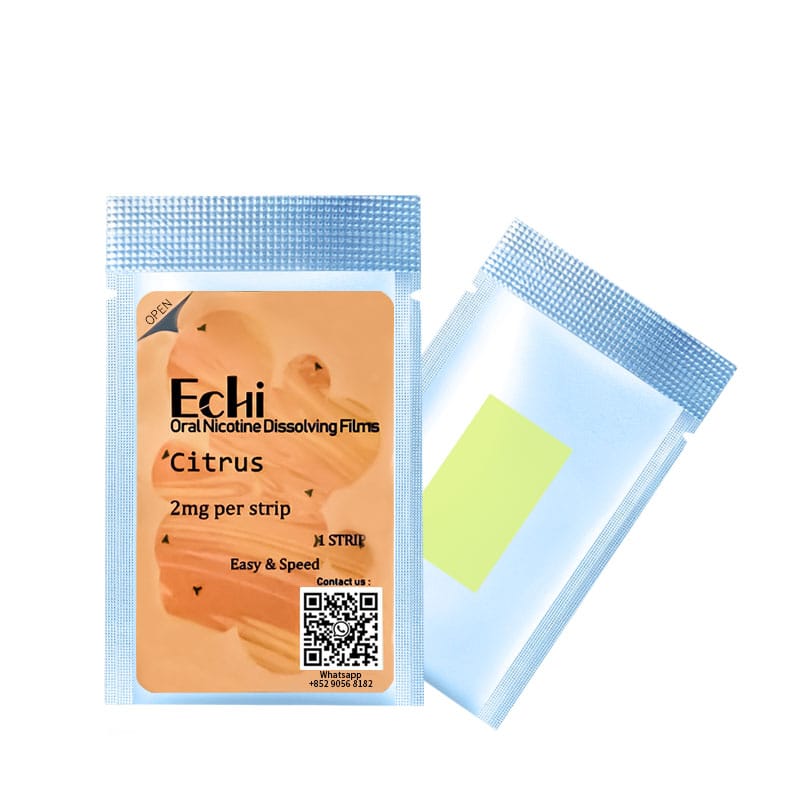Table of Contents
If you’re preparing for surgery, whether it’s a minor procedure or a major operation, there are a lot of things to consider to ensure your safety and health. One important consideration is whether or not it’s safe to continue using a nicotine patch in the days or hours leading up to surgery.
Nicotine can have several effects on your body, particularly on the cardiovascular system, blood flow, and healing process. As a result, many medical professionals may advise against using nicotine products before surgery. But does that mean you can’t wear a nicotine patch before surgery? In this article, we’ll explore the potential risks and benefits of wearing a nicotine patch before surgery and why it’s essential to consult with your healthcare provider beforehand.
What Is a Nicotine Patch?
A nicotine patch is a transdermal patch that releases nicotine into your bloodstream through the skin. It’s often used as a smoking cessation tool, helping people quit smoking by providing a steady, controlled dose of nicotine throughout the day without the need for smoking. Nicotine patches are typically worn for 16 to 24 hours at a time, depending on the strength, and come in various doses, such as 7 mg, 14 mg, or 21 mg of nicotine.

While nicotine patches are an effective way to manage nicotine cravings, they still carry the risks associated with nicotine consumption. Understanding how nicotine can affect your body before surgery is crucial for your overall health and recovery.
Why Does Nicotine Matter Before Surgery?
Nicotine has a range of physiological effects that may impact your surgical outcome, including:
1. Reduced Blood Flow
Nicotine is a vasoconstrictor, meaning it narrows blood vessels. This can reduce blood flow to tissues and organs, which can be detrimental during surgery, especially if you need optimal circulation for healing. Poor circulation may also increase the risk of complications during surgery and hinder the healing process afterward.
2. Increased Heart Rate and Blood Pressure
Nicotine is a stimulant, which can elevate heart rate and blood pressure. This can be dangerous during surgery, especially if you’re undergoing general anesthesia. Elevated blood pressure can increase the risk of complications such as heart attacks, strokes, or excessive bleeding during or after the procedure.
3. Impaired Healing and Infection Risk
Nicotine can impair your body’s ability to heal by reducing the oxygen supply to tissues. The healing process involves cell regeneration, which requires proper blood circulation and oxygenation. Nicotine can hinder this process, leading to slower healing times and a higher risk of infection after surgery.
4. Respiratory Issues
Nicotine can also impact lung function. If you are undergoing surgery that involves anesthesia, your lungs need to be in optimal condition to ensure proper ventilation. Smoking or using nicotine products can exacerbate respiratory problems and increase the likelihood of post-surgical complications like pneumonia or breathing difficulties.
Should You Wear a Nicotine Patch Before Surgery?
The general recommendation from most healthcare professionals is to avoid nicotine products—including nicotine patches—before surgery. The reasons for this include:
- Potential for Compromised Healing: Nicotine can slow down the healing process, making it harder for your body to recover after surgery. This is especially important if you’re having a procedure that requires stitches, incisions, or any form of tissue repair.
- Increased Risk of Complications: As mentioned earlier, nicotine increases your heart rate, constricts blood vessels, and can lead to other complications that may interfere with anesthesia or your body’s response to surgery.
- Nicotine Withdrawal: Some individuals experience withdrawal symptoms, such as irritability, anxiety, and cravings, when they stop using nicotine. This can be a concern if you’re advised to stop using nicotine prior to surgery, but the risks of nicotine far outweigh the temporary discomfort of withdrawal.
When Should You Stop Using a Nicotine Patch Before Surgery?
To minimize the risks associated with nicotine, healthcare professionals often recommend that patients stop using nicotine products at least 24 to 48 hours before surgery. For optimal results, some surgeons and medical professionals may advise quitting nicotine altogether several weeks before surgery, particularly for major procedures.
The timing of when to stop using nicotine products, including nicotine patches, will depend on the type of surgery, your medical history, and the advice of your healthcare provider.
What Are the Alternatives to Nicotine Patches Before Surgery?
If you’re concerned about nicotine withdrawal symptoms or cravings before your surgery, consider these alternatives to help manage your nicotine intake:
- Nicotine-Free Products: You might want to try nicotine-free options such as nicotine pouches or nicotine-free gums, which can help alleviate cravings without compromising your health before surgery. These products do not contain nicotine, making them a safer alternative in the days leading up to your procedure.
- Nicotine Replacement Therapy (NRT): If you’re struggling with quitting nicotine, consider discussing other NRT options with your doctor. Options like nicotine gum or lozenges may be easier to manage and can be discontinued well in advance of surgery.
- Gradual Reduction: If you’re unable to quit nicotine cold turkey, your doctor may recommend a gradual reduction strategy that allows you to wean off nicotine over a period of weeks, which can reduce withdrawal symptoms and help your body adjust more smoothly.
Consult Your Healthcare Provider
As with any medical decision, the best course of action is to consult your healthcare provider before making changes to your nicotine habits prior to surgery. They can provide tailored advice based on your health status, the type of surgery you’re undergoing, and your overall smoking cessation goals.
Your doctor may suggest a specific timeline for stopping nicotine use before surgery, along with strategies to manage any withdrawal symptoms, ensuring that you’re in the best possible condition for your procedure.
Conclusion
While nicotine patches can be a helpful tool for managing cravings during smoking cessation, it’s generally advised that you avoid using nicotine patches before surgery due to the potential risks they pose to your cardiovascular health, healing process, and surgical outcome. The nicotine in these patches can interfere with blood flow, healing, and anesthesia, so it’s important to discuss the best plan with your doctor well in advance of your surgery.
If you’re looking for alternatives to nicotine or need guidance on quitting, your healthcare provider can help you create a safe and effective strategy. Ensuring you’re nicotine-free before surgery is one important step in optimizing your recovery and minimizing complications.
For those interested in smoke-free alternatives, consider exploring nicotine-free options like Echi Nicotine Pouches, which offer a discreet and satisfying experience without the risks of nicotine.

FAQs
1. Can I wear a nicotine patch the night before surgery?
It’s generally recommended that you stop using nicotine products, including nicotine patches, 24-48 hours before surgery to reduce the risks of complications.
2. Will nicotine affect anesthesia during surgery?
Yes, nicotine can increase your heart rate and blood pressure, potentially interfering with anesthesia. It’s crucial to stop using nicotine products well before surgery to ensure the best results.
3. What are the withdrawal symptoms from nicotine?
Common withdrawal symptoms include irritability, anxiety, cravings, and difficulty concentrating. These can be managed with alternative nicotine replacement options or support from a healthcare provider.
4. Can I use nicotine-free products before surgery?
Yes, nicotine-free products like Echi Nicotine Pouches can be a safer alternative in the days leading up to surgery, as they do not contain nicotine and won’t impact your surgery.
5. How long before surgery should I quit nicotine?
The recommended timeframe for quitting nicotine varies, but ideally, you should stop using nicotine products at least 24-48 hours before surgery, or longer if possible, based on your healthcare provider’s recommendations.
For personalized guidance, don’t hesitate to contact your doctor or reach out to us via WhatsApp at +852-90568182.







